Russia claims rebels used chemical weapons in Syria
Updated: 2013-07-10 06:33
(Xinhua)
|
||||||||
UNITED NATIONS - A day after Syria invited United Nations chemical weapons investigators to talks in Damascus, Russia said on Tuesday it had forensic proof that rebels have used a "lethal" sarin compound and handed its evidence to the UN team for inquiry.
Ambassador Vitaly Churkin, permanent representative of Russia to the United Nations, told reporters he submitted an analysis, " certified by chemical weapons organizations," in "80 pages of photographs, formulas and graphs" to UN Secretary-General Ban Ki- moon.
Churkin said sarin, a colorless, odorless liquid affecting the nervous system, was in a projectile fired by the opposition into the Khan al-Asal section of Aleppo on March 19. Some 200 people were killed in the attack.
Syria complained to the United Nations and requested an investigation.
Shortly afterward, Britain, France and the United States said it had indications the Syrian government had used chemical weapons against opposition forces. The allies admitted they lacked the " chain of custody" necessary for forensic proof.
Ban said all allegations would be investigated and established an investigative team. But Syria balked at such a wide-open inquiry.
Churkin said the Syrian government requested Russian experts investigate the case adding it was not Moscow's intention to replace the UN investigation but was sharing the results of its inquiry with the UN investigators in hopes they will arrive at a " reasonable conclusion."
"I have just submitted to the secretary-general the results of the analysis of on-site samples taken by Russian experts in Khan al-Asal," he said. "I would like to underscore that unlike other reports submitted to the secretary-general that the Russian experts in person took our samples out of the projectile."
"All others were submitted to us by third parties," he said, adding the samples were identified by the Russian Federation of Chemical Weapons.
The Russian investigation found "the rebels launched and guided three projectiles towards Khan al-Asal government forces."
There were two indications uncovered by Moscow's inquiry leading it to believe the opposition produced and fired the chemical weapon.
"The results of the analysis clearly indicate that the ordnance used in Khan al-Asal was not industrially manufactured and was filled with sarin," Churkin said. "The sarin technical specifications prove that it was not industrially manufactured either."
The implication being that munitions used by the government would be up to industrial standards where opposition munitions would not.
Churkin recalled the Iraqi government recently reported "it found three laboratories in Iraq which were involved in producing sarin. Such things can be produced in make-shift conditions at the level of production less refined than industrial level but which still would be lethal."
"The absence of chemical stabilizers in the samples of the detected toxic agents indicated relatively recent production," he said. "The projectile involved is not a standard one for chemical use."
The chemical hexogen, used as "an opening charge in the projectile," is not used in standard ammunitions, Moscow's envoy said. "Therefore there is every reason to believe that it was the armed opposition fighters who used the chemical weapons in Khan al- Asal."
Churkin said Russia had also learned that production of Bashar 3 unguided projectiles was started in February by the rebels' al- Nasr unit, not long before the March 19 attack.
The ambassador said Russia welcomes the Syrian government's invitation to High Representative for Disarmament Affairs Angela Kane and the head of the UN investigation team, Professor Ake Sellstrom to have talks in Damascus and voiced support for a "thorough investigation of all credible allegations."
Sellstrom and members of his team have been cooling their heels waiting to go into Syria.
"We believe that this initiative creates a new positive momentum in order to launch an investigation into the use of chemical weapons in Syria," he said. "All modalities of such investigations should be defined in direct discussions between the Syrian government and the UN Secretariat."
But, Churkin explained, "You would not be looking to a replica of an Iraq model of, like, indefinite in time and scope investigation. This is not warranted, I believe, by the circumstances."
Weapons inspectors were sent into Iraq before the Iraq war began in 2003 to search for weapons of mass destruction, including chemical and nuclear devices. While none was found by the UN investigators, there were some indications there may have been some but no conclusive proof was found, despite claims by the United States that Iraq possessed such weapons.
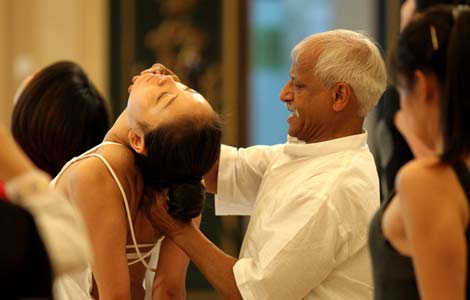
 Breathe deep, this is the real thing
Breathe deep, this is the real thing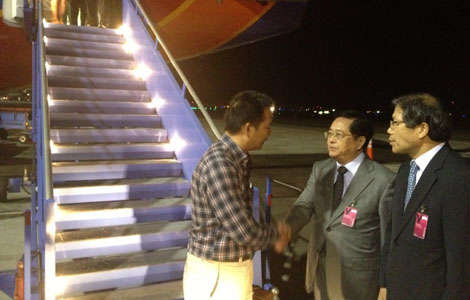
 Families of crash victims in SF
Families of crash victims in SF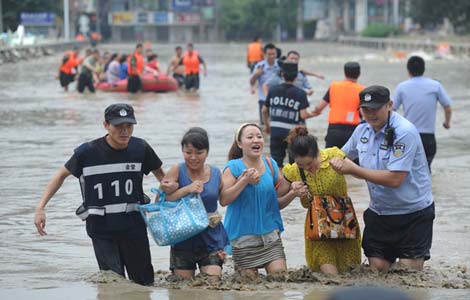
 Rainstorms cause severe flooding and landslides
Rainstorms cause severe flooding and landslides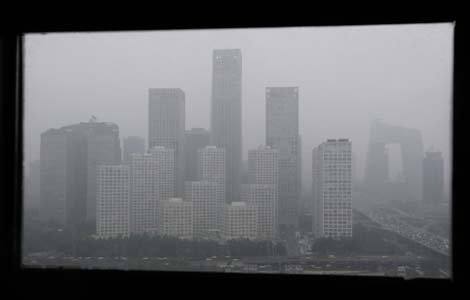
 Coal burning in China's north can shorten lives
Coal burning in China's north can shorten lives
 Some solar companies see brighter first half
Some solar companies see brighter first half
 Thousands flock to Texas Capitol over abortion
Thousands flock to Texas Capitol over abortion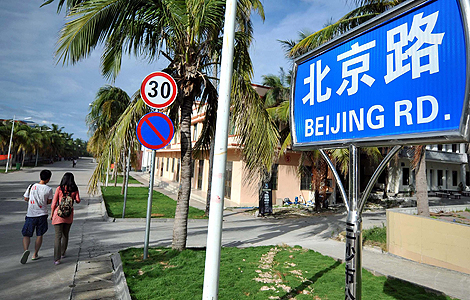
 China's youngest city glistens under palm trees
China's youngest city glistens under palm trees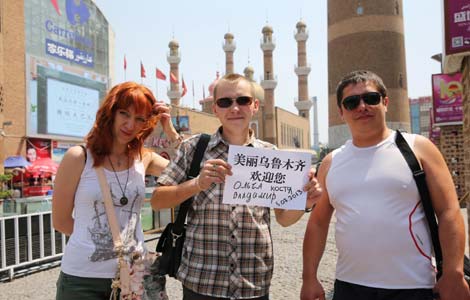
 Xinjiang tourism recovering
Xinjiang tourism recovering
Most Viewed
Editor's Picks

|

|

|

|

|

|
Today's Top News
China, US hold talks on cybersecurity
Shenzhen Red Cross denies organ claim
Security in cyberspace 'still major problem'
Rainstorms cause severe flooding and landslides
Japan tags China as 'security threat'
Honesty is a challenge for CPC
Snowden hasn't accepted asylum
Teenage girls were best friends
US Weekly

|

|







